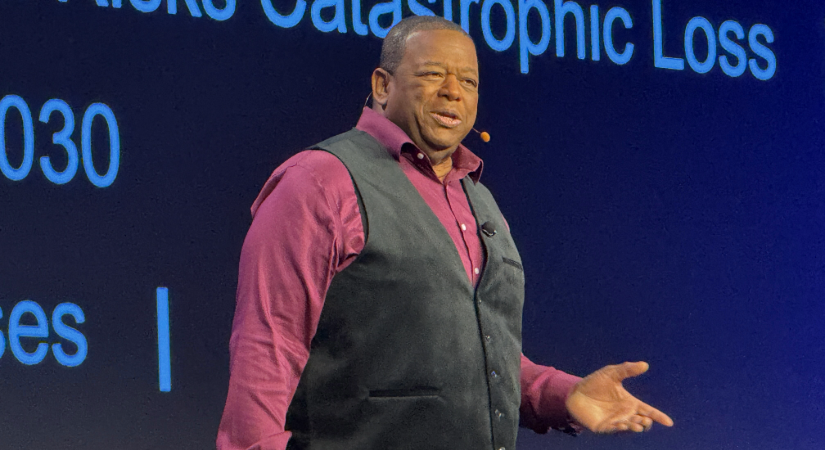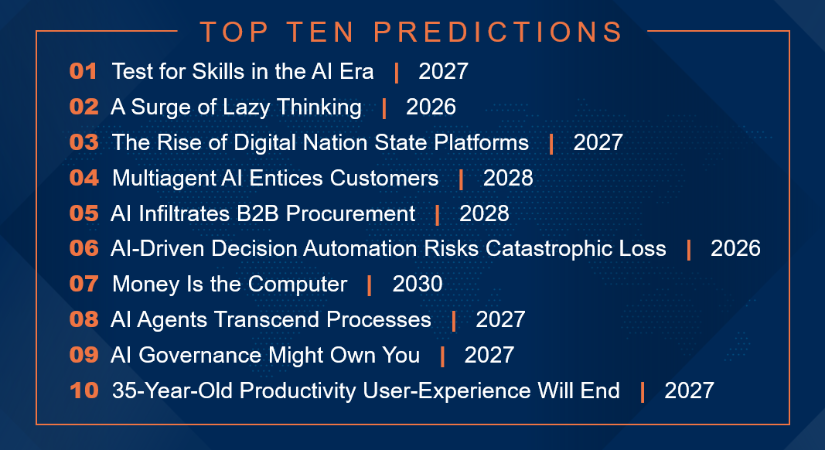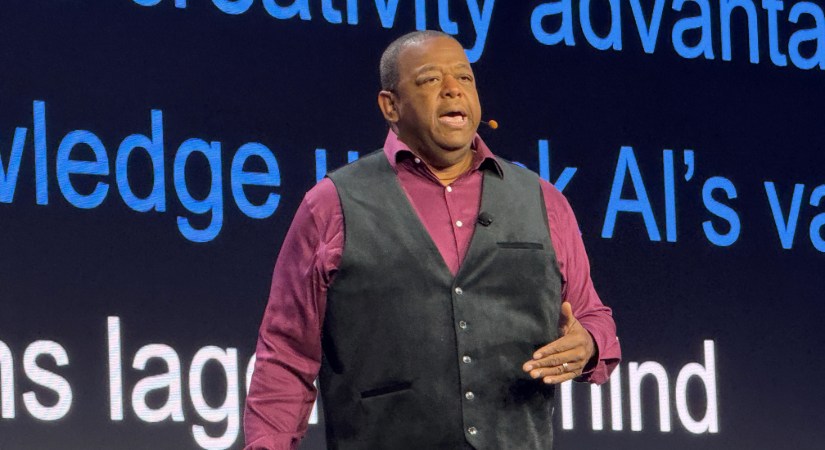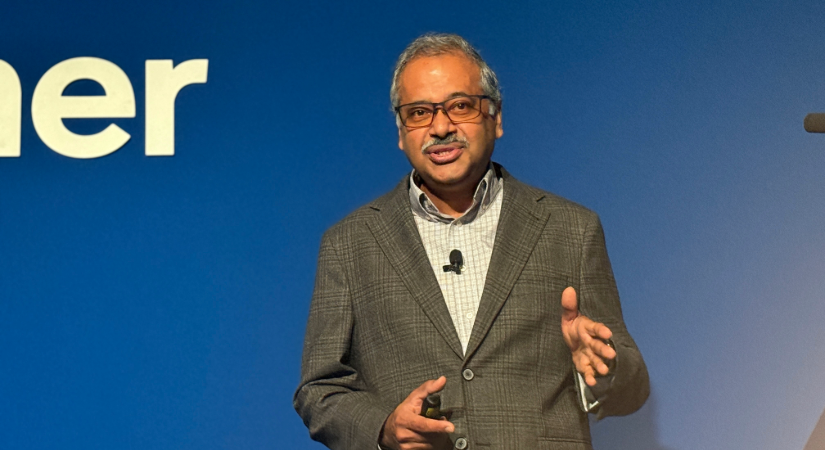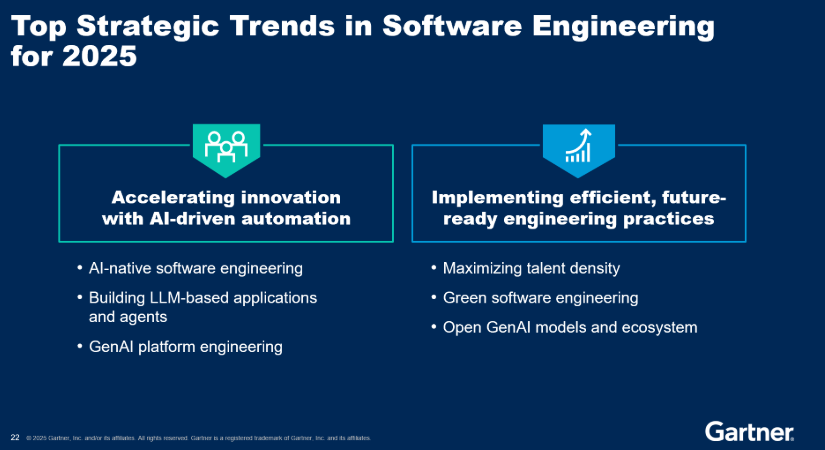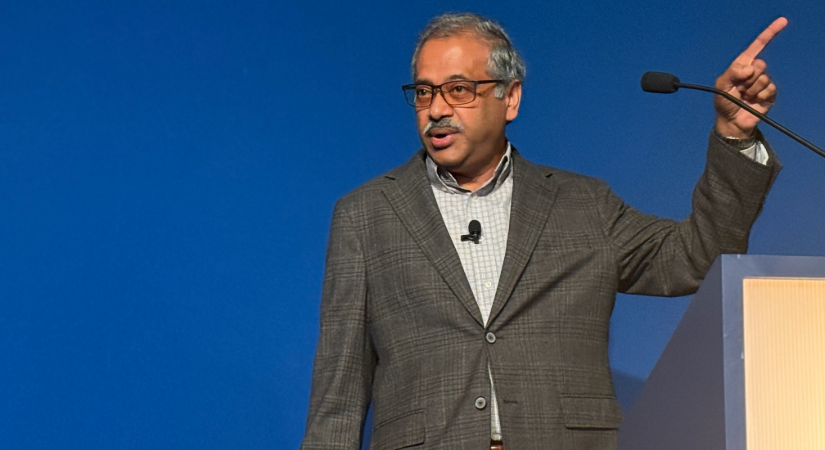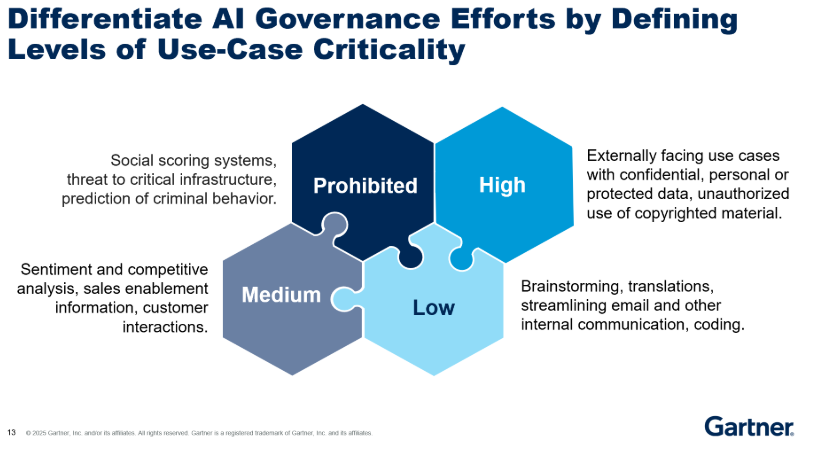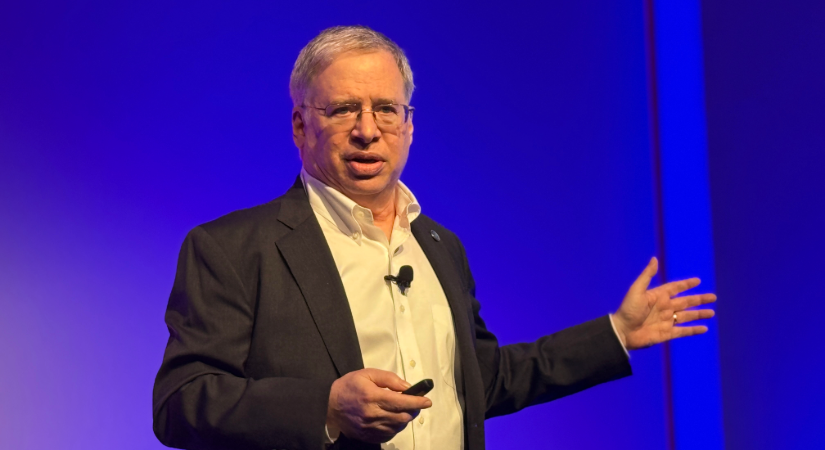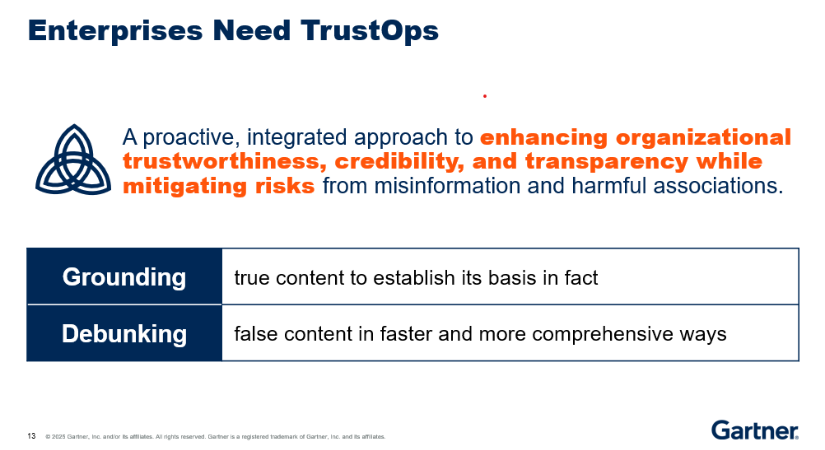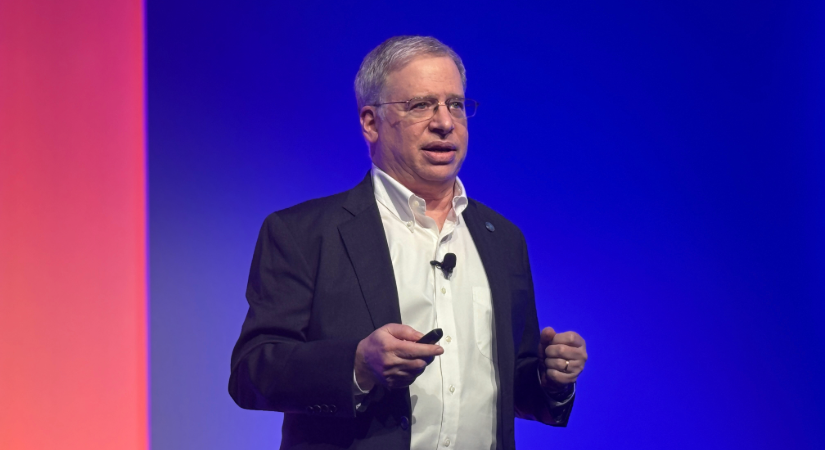Orlando, Fla., October 21, 2025
- Gartner client? Log in for personalized search results.
Gartner IT Symposium/Xpo 2025 Orlando: Day 2 Highlights
It’s not too late to join the conference
Overview
We are bringing you news and highlights from Gartner IT Symposium/Xpo, taking place this week in Orlando, Florida. Below is a collection of the key announcements and insights coming out of the conference.
On Day 2 from the conference, we are highlighting the top strategic predictions for 2026 and beyond, top trends in software engineering, executive AI governance playbooks and the evolution of misinformation. Be sure to check this page throughout the day for updates.
Key Announcements
- Gartner Survey Finds All IT Work Will Involve AI by 2030; Organizations Must Navigate AI Readiness and Human Readiness to Find, Capture and Sustain Value
- Gartner Identifies the Top Strategic Technology Trends for 2026
- Gartner Survey Reveals 50% of Non-U.S. CIOs and Technology Executives Anticipate Changes to Vendor Engagement Based on Regional Factors
- Gartner Predicts Enterprise Spending on Battling Misinformation and Disinformation Will Surpass $30 Billion by 2028
- Gartner Unveils Top Predictions for IT Organizations and Users in 2026 and Beyond
Signature Series: Gartner’s Top Strategic Predictions for 2026 and Beyond
Presented by Daryl Plummer, Distinguished VP Analyst, Chief of Research and Gartner Fellow
When it comes to predicting the future, CIOs can either embrace the opportunity to change or stand by as competition that takes the first mover advantage threatens their position. In this session, Daryl Plummer, Distinguished VP Analyst, Chief of Research and Gartner Fellow, unveiled the top predictions that CIOs can use as a call to action today to prepare for a soft-landing tomorrow.
Key Takeaways
Through 2026, atrophy of critical-thinking skills, due to GenAI use, will push 50% of the global organizations to require “AI-free” skills assessments. “Treating AI like a wizard could set us back 10 years.”
By 2027, 35% of countries will be locked into region-specific AI platforms using proprietary contextual data. “Employ model distillation as a tactic to reduce the impact of regional lock-in.”
By 2028, organizations that leverage multiagent AI for 80% of customer-facing business processes will dominate. “Design processes for AI agents, not humans.”
By 2028, 90% of B2B buying will be AI agent intermediated, pushing over $15 trillion of B2B spend through AI agent exchanges. “Make products machine-readable to unlock new markets.”
By the end of 2026, “death by AI” legal claims will exceed 1,000 due to insufficient AI risk guardrails. “Create contingency funds for damaging AI incidents.”
Learn about five additional top predictions in the Gartner press release “Gartner Unveils Top Predictions for IT Organizations and Users in 2026 and Beyond."
Top Strategic Trends in Software Engineering for 2025
Presented by Arun Batchu, VP Analyst, Gartner
Thriving in times of intense economic and social volatility requires organizations to find new ways to empower their software engineering organization to increase productivity, efficiency and effectiveness. In this session, Arun Batchu, VP Analyst at Gartner, provided Gartner's latest and best guidance on the trends CIOs, software engineering leaders and their teams should track and take action upon in 2025 and beyond.
Key Takeaways
- “41% of leaders said that building AI capabilities into apps or establishing AI engineering were top organizational priorities. Improving software delivery processes and practices were also listed as top organizational priorities.
“To deliver on these objectives, you need to be strategic about where you place your bets — especially when your budget is flat.”
The top strategic trends in software engineering in 2025 are:
Accelerating innovation with AI-driven automation such as AI-native software engineering, building LLM-based applications and agents, and GenAI platform engineering.
And, implementing efficient, future-ready engineering practices such as maximizing talent density, green software engineering, and open GenAI models and ecosystem.
Journalists can receive additional information and/or request an interview with the Gartner analyst by contacting Matt LoDolce at matt.lodolce@gartner.com.
Executive AI Governance Playbook
Presented by Svetlana Sicular, VP Analyst, Gartner
Successful AI governance requires an operating model, policies, controls and enabling technologies. It is necessary to balance AI’s value with the new risks resulting from its criticality, scalability and democratization. In this session, Svetlana Sicular, VP Analyst at Gartner, outlined Gartner’s AI governance playbook to design, implement and adjust AI governance, ensuring compliant, ethical, trustworthy and responsible AI.
Key Takeaways
“Focus governance on the current AI portfolio over what you might do someday. Manage each portfolio use case across business, social, customer or employee dimensions of responsible AI.”
“Define levels of use-case criticality to focus AI governance on what matters the most to the business.”
“Proactively design and execute an AI literacy program centered around various roles. Balance risk with AI literacy via differentiated controls.”
“All leadership approaches and structures vary due to the novelty of AI governance. Consider AI scope and maturity, industry, regulatory compliance and culture.”
“Involve diverse stakeholders in AI governance who can ask and resolve questions to address AI issues. Pace governance with AI speed.”
Journalists can receive additional information and/or request an interview with the Gartner analyst by contacting Matt LoDolce at matt.lodolce@gartner.com.
Winning in a World Without Truth
Presented by Andrew Frank, Distinguished VP Analyst, Gartner
The evolution of misinformation and disinformation, identified by the World Economic Forum as a top risk, threatens all enterprises and necessitates a response that extends beyond cybersecurity. In this session, Andrew Frank, Distinguished VP Analyst at Gartner, discussed how CIOs are well-positioned to lead efforts in addressing this issue.
Key Takeaways
- In a survey of 200 C-level leaders at the start of 2025, the majority (68%) are discussing disinformation at an executive committee level. 79% have encountered disinformation issues in the last three years, but only 38% have mechanisms in place to counter it.
“This is a separate issue from cybersecurity. It manifests differently, and requires different governance, tools and processes. Even if an organization had perfect physical security and cyber security, it could still be completely vulnerable to disinformation attacks.”
“Gartner has coined the term TrustOps to refer to everything a company needs to do to manage truth and trust in content.”
Grounding: “The first aim of TrustOps is to assure the information and content that a company consumes to make decisions is verified and the content it publishes is certified, in terms of provenance, chain of custody, audit trail, etc.”
Debunking: “The second aim of TrustOps is to detect false narratives in the ecosystem and prepare actions to counter them without delay.”
Learn more in the Gartner press release “Gartner Predicts Enterprise Spending on Battling Misinformation and Disinformation Will Surpass $30 Billion by 2029."

It’s not too late to join the conference
Tune back in tomorrow for more updates from the conference.
Media contact
Matt LoDolce
Gartner
matt.lodolce@gartner.com
Meghan Moran
Gartner
meghan.moran@gartner.com
Latest releases
About Gartner
Gartner (NYSE: IT) delivers actionable, objective business and technology insights that drive smarter decisions and stronger performance on an organization’s mission-critical priorities. To learn more, visit gartner.com.
